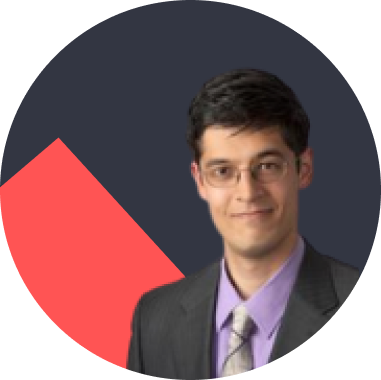The Teddy Bear Principle with
Dr. Andrew Thurston

A Conversation with Dr. Andrew Thurston
“In order to build relationships with others, you have to make sure that you have a solid relationship with yourself.”
Bio
Andrew Thurston is a Clinical Associate Professor of Medicine and the Medical Director of the Supportive and Palliative Care service at UPMC Mercy Hospital. He is board certified in Internal Medicine, as well as Hospice and Palliative Medicine, with clinical interests spanning both Geriatrics and Palliative Care. Dr. Thurston’s interests include the integration of medical humanities into clinical care and medical curriculum. Dr. Thurston frequently leads Reflective Reading exercises that use poetry, art, photography, and short fiction as a tool for reflecting on various issues in the medical field. He is a Co-Director of the Area of Concentration for the Humanities and Medical Ethics at the University of Pittsburgh, and Co-Director of the Narrative and Experience of Illness elective for third and fourth year medical students.
Who were some of your early role models and what lessons did they impart to you?
“I’ve been fortunate to have had a number of role models, or at least people, I’ve looked up to,” Dr. Thurston reflects, “and a lot of the influences come from my family. My parents and I grew up in a mixed ethnicity household. I’m half Chinese, half Caucasian. A kind of family where my grandmother was always with us, for better or worse. She never saw a day in a nursing home. So, I grew up very close with my family, and I think learned how to have conversations across the generations and learned how to respect different viewpoints.”
“And I think that translated into some of my career interests in geriatrics and palliative care, where I am now. I think the other side of my mentorship were people whom I never met. Authors, poets, and filmmakers. I’ve always had tremendous interest in the humanities. In fact, I didn’t know I wanted to be a doctor for the longest time. I actually went to college, wanting to move to New York City and be a bohemian playwright and have my lack of success inform my art.”
“It wasn’t until college when I had an awakening and realized, ‘Well, I can do something, I can help people. I can go into medicine, and I can still write, and I can still be influenced by these other mentors. I can still read. I can still integrate some of my other passions into this newfound passion.”
How do you build strong relationships?
“I think in order to build stronger relationships, you have to make sure that you have a solid relationship with yourself. It requires a lot of introspection and self-reflection. A lot of thinking and rethinking what your priorities are. What is important to you?”
According to Dr. Thurston, this process never stops. It requires constant evaluation and rethinking as your life changes and you become more established or have a family. “Just as it’s okay to hope for different things in mentorship, it’s also okay to hope for or change directions in your life as well. At the end of the day, no matter where you are in your career, be open-minded. Be curious. Don’t necessarily be afraid of change, because whether you like it or not, change comes. It’s going to happen!”
“But try to embrace it and it can be exciting at times.”
What is the best way for us to self-reflect?
“The key is to find things that give your life meaning. If they can be outside of medicine, outside of your practice, wonderful.”
“For me, it’s writing, it’s poetry. For other people, it may be music. It may be cooking. It may be going out into nature. But the key is to prioritize it. To fight to protect it as you would anything else that you love or value in life. To carve out dedicated time to make sure that you pursue it, just as you would an RO1 grant, your promotion or whatever else it may be. You have to prioritize it and make sure that it’s important, and make sure other people know it’s important, too.”
What is narrative medicine?
“Narrative medicine is a wonderful way to integrate narrative techniques into the care that we provide, not only for patients but for our colleagues and ourselves as well.”
“I use the medical humanities more as a way to get at each of our individual stories. Our unique narratives, the stories that we tell, the stories that sometimes we might not feel comfortable sharing but are definitely there. In order to truly practice medicine in a patient-centered way, we have to get to know our patients. And the only way we can do that is to hear their stories.”
Dr. Thurston went on to share what he calls the Teddy Bear Principle. “It sounds kind of silly, but basically the gist of it is, imagine you’re walking into your patient’s room and they’re lying in the bed. Next to them on the bed is a stuffed animal. Say, a teddy bear or something like that.”
“Odds are, someone thought to put that there. Or the patient thought to bring it, or maybe there’s a story behind it. You don’t know unless you ask. I teach and tell all of my residents to ask about the teddy bear, to ask about the patient’s story.”
Dr. Thurston believes this attention to detail makes the physician and patient relationship much stronger.
What is one thing you wish you knew when you entered medical school?
“Make sure you eat during the day,” Dr. Thurston remarked, “I joke, but I’m actually pretty serious about that.”
As a young physician, Dr. Thurston regrets not taking better care of himself. For him, it was go time all the time. He was focused on seeing as many patients as possible and did little to look after his own wellbeing.
But as he would learn, prioritizing and taking care of yourself is important. And as he notes, “Sometimes it’s the small and seemingly overlooked and simple things like taking a lunch that make the most difference.”
Pearls of Wisdom
- Building a strong relationship with a mentor requires having a strong relationship with yourself.
- It’s most important to take the time to be present with the patient. Take the time to learn their story—it better informs the care of the patient. (It’s not just about diagnosing them.)
- The smallest, overlooked things can make the biggest difference: Do not forget to eat during the day.
